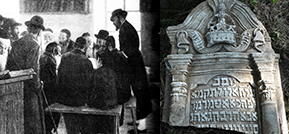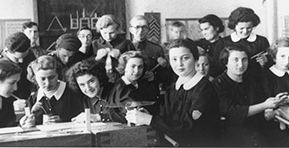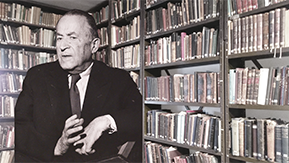Kolbuszowa
Name in English:
Kolbushova
Name in Ukrainian:
Кольбушова (Kolbushova)
Name in Polish:
Kolbuszowa
Name in Hebrew:
קולבושובה
Name in Yiddish:
קאלבושאוו (Kolbushov)
Historical-cultural region:
Western Galicia
Administrative District :
Podkarpackie Voivodeship
Coordinates:
50°15' N, 21°46' E
Population Data:
|
Year |
General Population |
Jews |
|
1765 |
(?) |
542 |
|
1804 |
3262 |
1987 |
|
1880 |
3111 |
1935 |
|
1890 |
3072 |
1953 |
|
1900 |
2894 |
1685 |
|
1910 |
3460 |
1947 |
|
1921 |
2900 |
1415 |
|
1939 |
(?) |
1756 |
Items relevant to the community
| Title | Type of item | Years |
|---|---|---|
| "О высылке заложников", в т.ч. об арестах, вз... | Картки Центрального архіву історії єврейського народу в Єрусалимi | 1915 |
| 1. Okólniki, sprawozdania, korespondencja i inn... | Картки Центрального архіву історії єврейського народу в Єрусалимi | 1898 |
| Correspondence with the Landesgubernium about a... | Картки Центрального архіву історії єврейського народу в Єрусалимi | 1875 |
| Ernennung von Bezirks- und GemeinderabbinernОб ... | Картки Центрального архіву історії єврейського народу в Єрусалимi | 1854 |
| Gródek Jagełłoński, Grybów, Horodenka, Husiatyn... | Картки Центрального архіву історії єврейського народу в Єрусалимi | 1909 |
| HM3/939.01 | Картки Центрального архіву історії єврейського народу в Єрусалимi | |
| Interpelacja, sprawozdania, korespondencja i in... | Картки Центрального архіву історії єврейського народу в Єрусалимi | 1920 |
| Kolbuszowa | Спільноти | |
| Korespondencja w sprawie zażaleń i protestów od... | Картки Центрального архіву історії єврейського народу в Єрусалимi | 1901 |
| Korespondencja w sprawie zażaleń i protestów od... | Картки Центрального архіву історії єврейського народу в Єрусалимi | 1901 |






